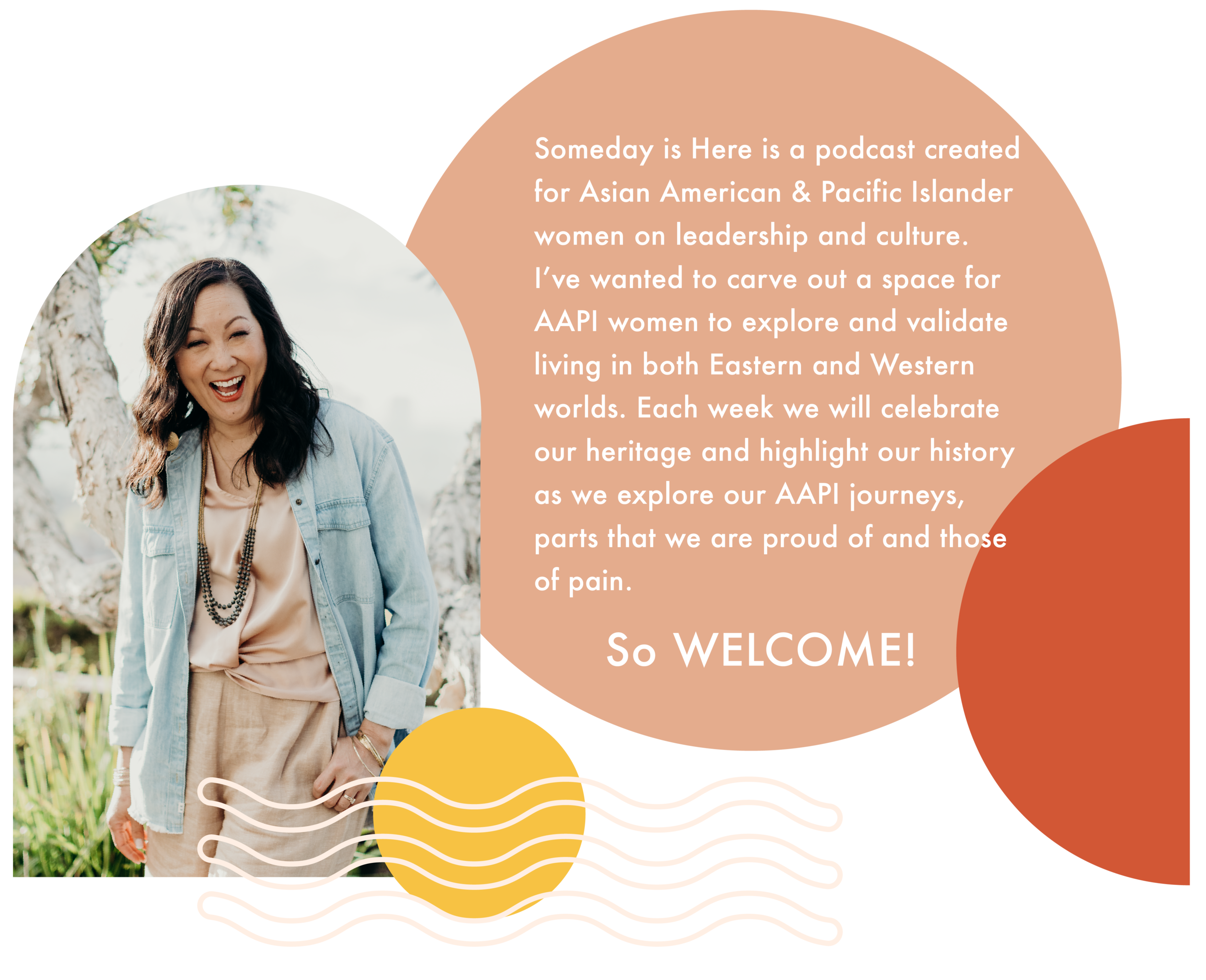Episode 26 - Margaret Yu
Episode 26 w/ Margaret Yu
Margaret Yu is one of my oldest friends. We have known each other for over three decades. I’ve watched Margaret lead firsthand in various capacities over the years. She currently serves as the National Director for Epic Movement, the Asian American ministry of Cru and also as the Executive Director of Ethnic Focused Communities of Cru. Margaret leads in the complexities of helping develop multiethnic leaders while maintaining the priority of caring well for the people in her life. I loved our conversation today focused on leadership and the importance of how knowing our Asian American history helps to ground us as leaders. Excited for you to listen to our conversation. And as always, we are so grateful for how you continue to subscribe, share, rate and review the Someday Is here podcast.
LEARN MORE ABOUT MARGARET
Instagram: @epicmyu
Margaret Yu is the National Director of Epic Movement, the Asian American ministry of Cru and the Executive Director of Ethnic Focused Communities of Cru. Margaret has served with Cru’s Campus Ministry for over 30 years. Her campus experiences span the globe from Milwaukee to Berkeley, to East Asia to Uzbekistan or to Los Angeles where she currently resides. Margaret loves college students. Her passion is to see God form many more culturally competent leaders for the kingdom of God. (Hence, she holds a Master's Degree in Global Leadership from Fuller Theological Seminary.) Her interests include mentorship or leadership development, talking shop about the NBA, and being at the beach.
LEADERSHIP LESSON
“Know your history. Know yourself because the hardest person to lead is actually yourself so stewarding yourself will make you a better leader.”
FAVORITE ASIAN COMFORT FOOD
Noodle soups & Mango with sticky rice
DID YOU KNOW?
Dr. Mabel Ping-Hua Lee Would Want You to Vote!
Did you know that at 16 years old, Dr. Mabel Ping-Hua Lee was at the forefront of the women’s suffrage movement in New York in the early 20th century? Despite the Chinese Exclusion Act of 1882, Mable Ping-Hua Lee and her family were able to immigrate from Guangzhou to New York because of a scholarship she received when she was nine. Her dad, having immigrated prior to the rest of the family, was a Chinese missionary living in the United States to pastor the Baptist Chinese Mission in New York’s Chinatown. Living a life full of faith and action, Mable Ping-Hua Lee became a notable suffragist and leader by the age of 16 as she lead thousands of women in the streets of New York to advocate for their rights despite the fact that Chinese Americans could not vote because of the Chinese Exclusion Act, which barred all Chinese immigrants from becoming citizens. Her work surrounding equal voting rights for women extended into her college career when she attended Columbia’s all-female counterpart, Barnard College. Throughout her time at Barnard, she was an active leader in the Chinese Students’ Association, she wrote feminist essays on voting rights for a college newspaper, and she gave speeches on voting rights for women and the importance of the involvement and education of Chinese American women of all ages. After Barnard, she became the first Chinese American woman to receive her PhD in Economics at Columbia, became the director of Baptist Chinese Mission after her father’s passing, wrote a book on the economic history of China, and established the Christian Chinese Center which served and empowered Chinese immigrants by providing resources such as English classes, health clinics, kindergarten, and vocational training. While researchers and historians are unsure if she ever attained citizenship and her right to vote, her legacy ensured that ALL women to come were able to. Don’t forget to register to vote ;)
Resources
Dr. Mabel Ping-Hua Lee & Other Suffragists You Should Know (US National Park Service)
Primary Source Archive of Chinese Students' Association Articles
Primary Source: New York Tribune (1912) feat. Mabel Ping-Hua Lee
Shall Not Be Denied: Women Fight for the Vote | Exhibitions at the Library of Congress
Works Cited
Alexander, Kerri Lee. “Mabel Ping-Hua Lee.” National Women’s History Museum, Accessed September 2020. www.womenshistory.org/education-resources/biographies/mabel-ping-hua-lee.
Li, Grace. ‘“Chinese Girl Wants Vote": The Asian-American Suffragette Mabel Ping-Hua Lee.’ Constellations 11, no. 2 (2020). doi: https://doi.org/10.29173/cons29419.

















